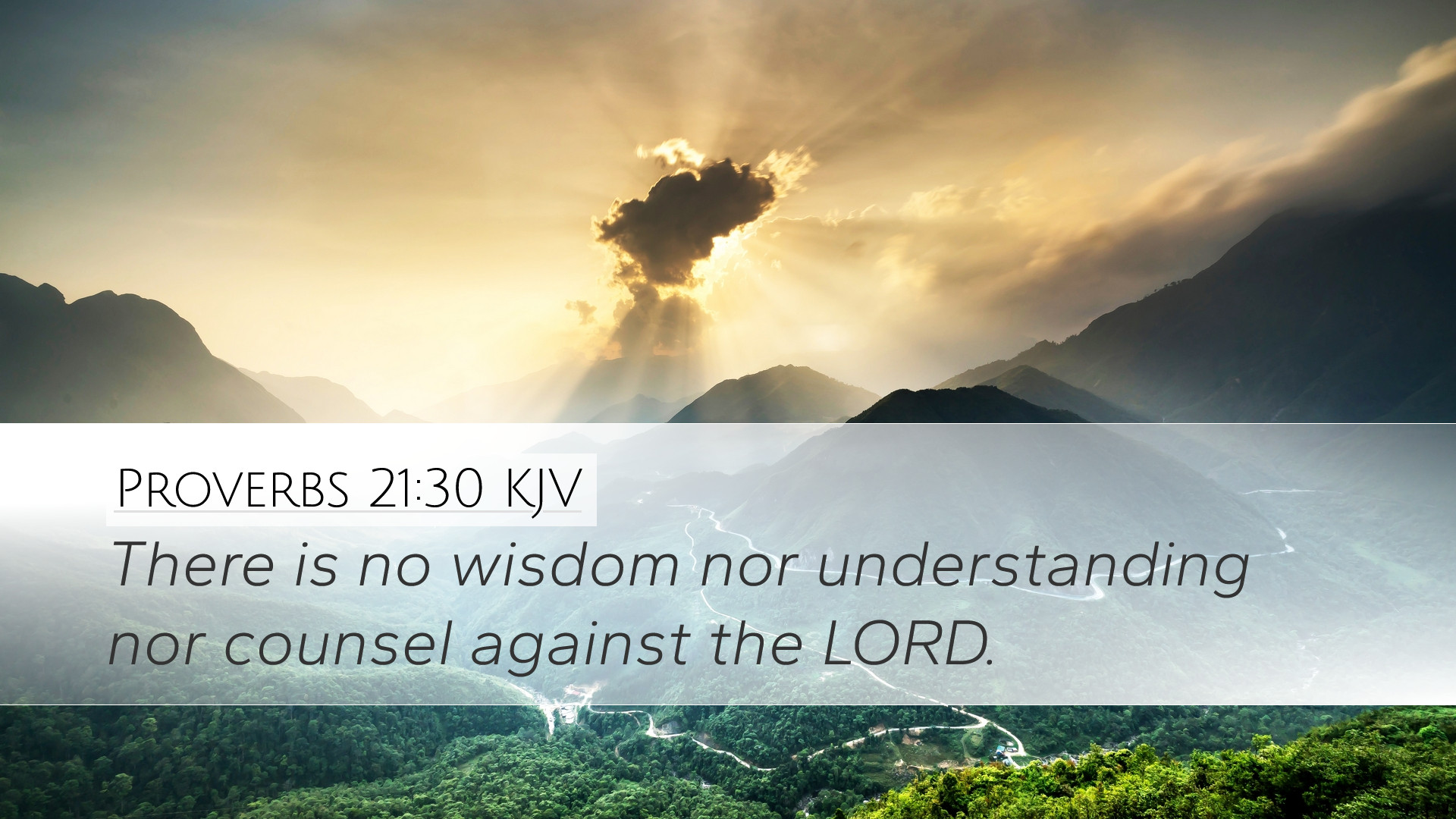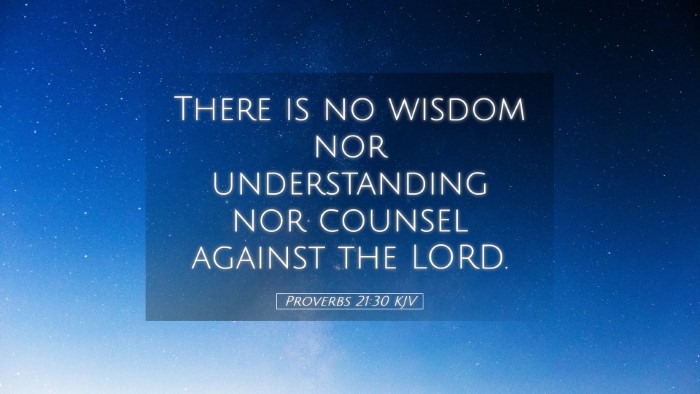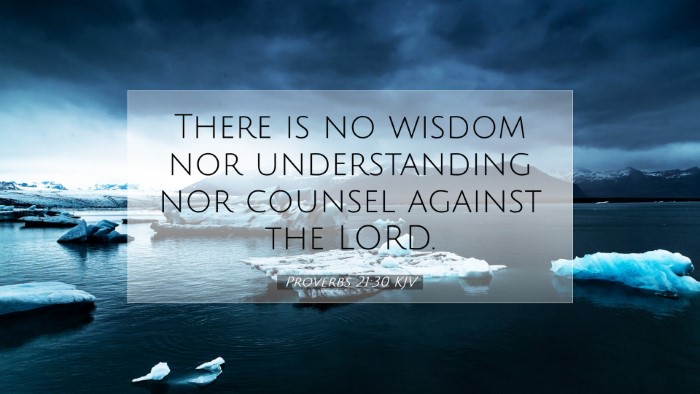Commentary on Proverbs 21:30
Proverbs 21:30 states, "There is no wisdom nor understanding nor counsel against the Lord." This verse encapsulates a profound truth about the sovereignty of God regarding human wisdom, strategy, and understanding. Throughout history, this truth has been echoed and elucidated by several commentary sources, providing excellent insights for theologians, pastors, and scholars alike.
Understanding the Text
The verse presents a triad of words: wisdom, understanding, and counsel, emphasizing their limitations when set against divine authority. Each term contributes to a deeper comprehension of human knowledge compared to God's omniscient nature.
Definition of Terms
- Wisdom: This refers to the application of knowledge in practical quotidian situations.
- Understanding: This is often seen as the discerning intellect or the ability to grasp deeper meanings beyond surface-level perceptions.
- Counsel: This represents advice or guidance typically sought from others, encapsulating the shared wisdom of humanity.
The Context of Proverbs
Proverbs, traditionally attributed to King Solomon, offers a wealth of wisdom literature. It serves to instruct its readers on practical living aligned with God's will. In the context of secular wisdom and human deliberation, this verse reminds believers that all human insight ultimately must yield to divine authority.
Matthew Henry's Insight
Matthew Henry emphasizes the futility of opposing God's will with human understanding. He notes that all wisdom and understanding must align with God's purposes, as they are ultimately subject to His sovereignty. Henry articulates that those who strive in their wisdom to contradict the divine will find themselves unable to prevail. The greater plan of God is unassailable by human schemes.
Albert Barnes's Perspective
Albert Barnes adds to this interpretation by discussing the nature of divine counsel. He argues that no earthly plan can stand against the divine decree. Barnes notes that this verse serves as a caution for those who put their trust in mortal reasoning rather than seeking the wisdom that comes from God. He references several scriptural examples where human wisdom failed in the face of God's sovereignty, illustrating that God's plans are supreme.
Adam Clarke’s Commentary
Adam Clarke emphasizes the significance of God’s omniscience in the face of human ignorance. He elaborates that the verse provides comfort to believers, assuring them that human manipulations and deceptions cannot thwart God’s designs. Clarke argues that true wisdom is dependent on aligning with God's will, and while human understanding may be valuable, it should always submit to divine wisdom.
Theological Implications
The implications of Proverbs 21:30 extend into various theological discussions. It poses critical questions about the nature of divine sovereignty versus human free will, the reliability of human understanding, and the importance of reliance on divine guidance in decision-making.
Sovereignty and Free Will
In discussing God's sovereignty, Proverbs 21:30 suggests that while humans are endowed with reason and the capacity for decision-making, these cannot altered divine plans. The theological synergy between God's absolute authority and human responsibility surfaces as a significant topic for scholars and theologians.
Dependence on Divine Guidance
Proverbs 21:30 encourages believers to seek guidance from God in their endeavors. It suggests that turning to divine wisdom is fundamental in navigating life's complexities. This dependence on God's wisdom fosters a deeper faith and reliance on His guidance, contrasting with becoming ensnared in human understanding which may lead to folly.
Application and Reflection
For pastors and spiritual leaders, this verse serves as a reminder to encourage their congregations to seek God sincerely in all aspects of life, acknowledging the limits of human understanding. It is vital to foster an environment that values prayer, seeking counsel from Scripture, and submission to God’s will.
Exhortation for Leaders
Pastors should regularly remind their congregations that while human reasoning is beneficial, it is crucial to measure it against God’s truths. Their teaching should emphasize reliance on spiritual discernment and biblical counsel over worldly wisdom, fostering a robust faith grounded in divine assurance.
Encouragement for Individuals
For students and individual believers, Proverbs 21:30 compels them to cultivate a relationship with God that prioritizes heavenly wisdom. They should actively seek to entrust their plans and aspirations to God, thus safeguarding against pride in their own understanding.
Conclusion
Proverbs 21:30 serves as a timeless reminder of the supremacy of divine wisdom over human understanding. As elucidated by Matthew Henry, Albert Barnes, and Adam Clarke, this verse encourages both personal humility and corporate encouragement to seek God's wisdom above all else. Such reliance fosters a faith community deeply anchored in the seeking of divine counsel, illustrating that true wisdom finds its roots solely in acknowledging God's unfailing sovereignty.


